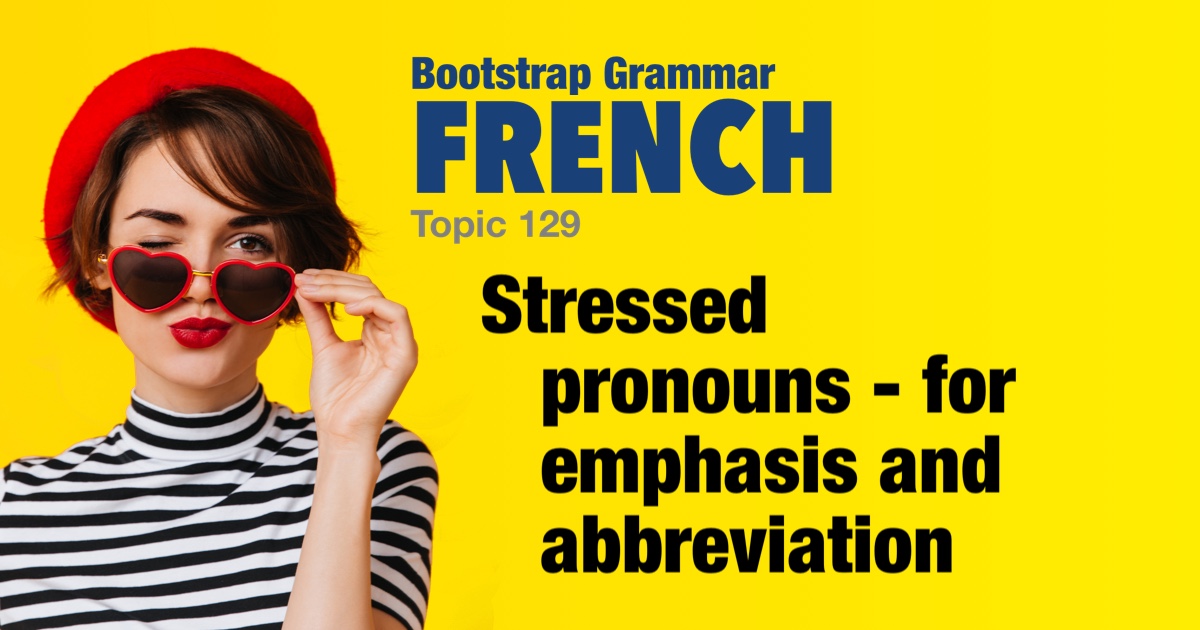French grammar - Stressed pronouns - for emphasis and abbreviation |
|||
|
|||
In the previous topic we saw how stressed pronouns are used after certain prepositions and conjunctions. Stressed pronouns (also called emphatic pronouns) are also used: • To emphasize identity in speech. Like we use 'As for me' in English. This is used in French much more than in English. -- Often this emphasis is affected using c'est + • To abbreviate - to act as the subject when the verb is implied - especially when answering questions. |
| Examples: | |
|
Moi, j'adore voyager.
Me, I like to travel. |
|
|
C'est lui qui a dit ça.
It is he who said that. |
|
|
Moi, je suis toujours à l'heure.
Me, I am always on time. |
|
|
Moi, j'adore les cerises, mais elle, elle préfère les fraises.
Me, I love cherries, but she prefers strawberries. |
|
|
Lui, il aime partir tout seul, mais moi, j'aime beaucoup voyager en groupe.
He, he likes to go alone, but me, I really like traveling in a group. |
|
|
Toi et lui, vous êtes très gentils.
You (familiar) and him, you are very nice. |
|
|
Je pense qu'il a raison. Moi, je pense qu'il a tort.
I think he's right. Me, I think he's wrong. |
|
|
Je les ai vus - lui et elle.
I saw them - him and her. |
|
|
C'est toi qui étudies l'art.
You (familiar) are the one who is studying art. |
|
|
Ce sont elles qui aiment Paris.
It is they who love Paris. |
|
|
Qui a fait ça ? Moi.
Who did this? Me (I did). |
|
|
Qui est là ? Moi.
Who is there? Me (it is me). |
|
|
Qui va à la plage ? Lui.
Who goes to the beach? Him (he is). |
|
|
J'ai faim, et toi ?
I'm hungry, and you (familiar)? |
|
 |
|


